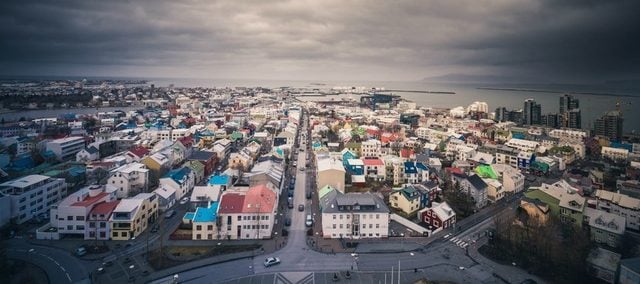When you think about the country of Iceland, the image of Vikings and the natural spa, the Blue Lagoon, immediately come to mind. But the most interesting thing about the sparsely populated island is a rare quality about its language. The Icelandic language is considered unique because of its linguistic purity—something that isn’t found in other languages. To honor the preservation of their exclusive language and its history, the country celebrates November 16th as Icelandic Language Day.
What is Linguistic Purity?
Linguistic purity means a lexicon excludes foreign words and phrases from a country’s dominant language. The words borrowed from other cultures are called loanwords. For example, the English language is Germanic in origin, but as it has evolved, English began to incorporate loanwords from other cultures to name or describe things. An example of loanwords in English would be word “guitar” it comes from the Spanish “guitarra” or “artisan” from the Italian word “artigiano”.
Another reason why the Icelandic language is so different is because there are almost no dialectical differences within the language. Every word in the Icelandic vocabulary is pronounced nearly the same no matter where a person is from in the country.
Historically Speaking
The small island in the North Atlantic Ocean was settled in the 9th century by Norse and Celtic explorers who brought with them their own language and for a time Iceland was governed by Denmark. The roots of the Icelandic language, (like English) trace back to Germanic language, but it is more closely related to Norwegian and Faroese.
In the 21st century, we do not speak the same English language as our ancestors did in the 17th century. This isn’t so with Icelandic. The language spoken in the 9th century when the county was settled hasn’t evolved. It is the same exact language its citizens speak today and it seems Icelanders are content with keeping it that way.
Making the Old New Again
Even with the advent and proliferation of technology, Icelanders have a sort of recycling program for the creation of new words. They use old words and apply a new meaning to them to reflect to modernity and keep the language free from alien influence. According to Gizmodo, “the word for “computer” is “tölva”. It is a combination of the word tala (number) and völva (prophetess).” There are some foreign words creeping into the language, but overall, it is still largely free from loanwords.
Language and Culture
Icelanders take a considerable amount of pride in the lack of foreign influence in their lexicon. Since 1996, Icelandic Language Day is celebrated on November 16th as a way to honor their linguistic heritage. The day also commemorates the birth of the country’s most famous poet, Jónas Hallgrímsson. He is credited with keeping the Icelandic language free from the influences of the Danish who controlled the country until 1944.
Each year, the Minister of Education and Culture presents the Jónas Hallgrímsson Award to individuals whose work has contributed to the protection and advancement of the Icelandic language. In addition to bestowing this high honor, schools around the country hold contests for writing and poetry.
Preservation is Important
Language is an integral part of culture and cultural identity. According to UNESCO, there are 2,450 languages around the world which are endangered, vulnerable or already extinct. Preserving language is one way to maintain a connection to culture, heritage, and to communicate with the world at large. Through maintaining linguistic purity, Icelanders have made sure their language and culture doesn’t fade into obscurity.

